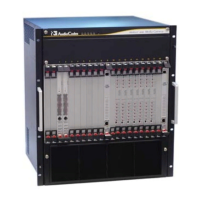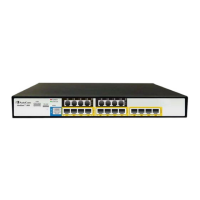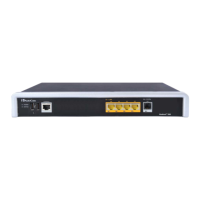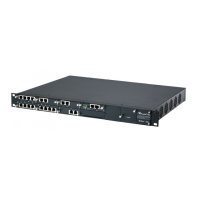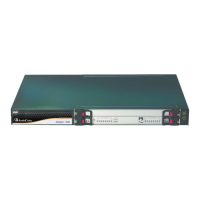CHAPTER19 Coders and Profiles
Mediant 800 Gateway & E-SBC | User's Manual
Parameter Description
'Generate RTP'
sbc-generate-rtp
[IPProfile_SBCGenerateRTP]
Enables the device to generate "silence" RTP packets to
the SIP entity until it detects audio RTP packets from the
SIP entity. The parameter provides support for interworking
with SIP entities that wait for the first incoming packets
before sending RTP (e.g., early media used for ringback
tone or IVR) during media negotiation.
■ [0] None = (Default) Silence packets are not
generated.
■ [1] Until RTP Detected = The device generates
silence RTP packets to the SIP entity upon receipt of a
SIP response (183 with SDP) from the SIP entity. In
other words, these packets serve as the first incoming
packets for the SIP entity. The device stops sending
silence packets when it receives RTP packets from the
peer side (which it then forwards to the SIP entity).
Note: To generate silence packets, DSP resources are
required (except for calls using the G.711 coder).
SBC Media
'Mediation Mode'
transcoding-mode
[IpProfile_TranscodingMode]
Defines the transcoding mode (media negotiation) for the
SIP entity associated with the IP Profile.
■ [0] RTP Mediation = (Default) Transcoding is done
only ifrequired. If not required, many of the media
settings (such as gain control) are not applied to the
voice stream. The device forwards the RTP packets
transparently (i.e., RTP-to-RTP) without processing the
data; only the RTP headers are re-constructed.
■ [1] Force Transcoding = Transcoding is always done
on the outgoing leg. The device interworks the media
for the SIP entity (as both legs have different media
capabilities), by implementing DSP transcoding. This
enables the device to receive capabilities that are not
negotiated between the SIP entities. For example, it
can enforce gain control to use voice transcoding even
though both legs have negotiated without the device's
intervention (such as Extension coders).
■ [2] RTP Forwarding = If transcoding is not required
and both legs are configured with RTP forwarding, then
RTP packets are forwarded transparently without any
processing. This mode is needed when the call parties
pass invalid RTP packets on the RTP port. If you use
this option, you may also need to configure the global
parameters 'Forward Unknown RTP Payload Types' to
Handle as Valid Packet, and 'Forward Invalid RTP
Packets' to Forward Packets.
Note:
■ To implement transcoding, you must configure the
number of required DSP channels for transcoding
(using the MediaChannels parameter). Each
transcoding session uses two DSP resources.
- 423 -

